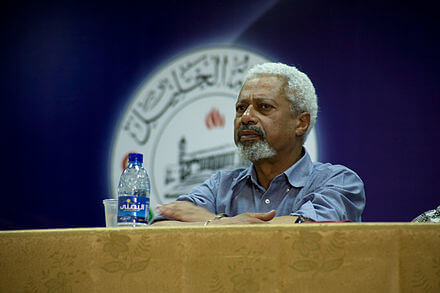Abdulrazak Gurnah wins Nobel prize for his writings on colonialism and migration

Novelist Abdulrazak Gurnah becomes first black African writer in 35 years to win the Nobel prize in literature. He was praised for his hard look on colonialism and the lives of refugees.
The 2021 prize was awarded to Abdulrazak Gurnah, for his “uncompromising and compassionate penetration of the effects of colonialism and the fate of the refugee in the gulf between cultures and continents”, according to the prize’s statement.
Novelist Abdulrazak Gurnah, who was born in Tanzania and lives in the U.K., wins the 2021 Nobel Prize for literature https://t.co/u6qAdoNp5s
— Bloomberg (@business) October 7, 2021
Gurnah was born in 1948, growing up in Zanzibar. In 1964, revolution hit Zanzibar and citizens of Arab origin were persecuted, and Gurnah was forced to flee the country at the age of 18. He began to write as a 21-year-old refugee in England, choosing to write in English, although Swahili is his mother tongue, says Guardian.
His first novel, Memory of Departure, was published in 1987. He has until recently been professor of English and postcolonial literatures at the University of Kent. Overall, he has published 10 novels as well as several short stories.
No black African writer has won the prize since Wole Soyinka in 1986. Gurnah is the first black writer to win since Toni Morrison in 1993.
“I was making a cup of tea and I thought it was a scam call.”
Novelist Abdulrazak Gurnah tells the BBC how he found out he was awarded the 2021 Nobel Prize for Literature.
In his novels, @GurnahAuthor explores the themes of colonisation, migration and the immigrant experience. pic.twitter.com/4ZwWeFwXPk
— BBC News Africa (@BBCAfrica) October 8, 2021
A brief look at the Nobel Prize for literature
Worth 10m Swedish krona (£840,000), the Nobel prize for literature goes to, in the words of Alfred Nobel’s will, “the person who shall have produced in the field of literature the most outstanding work in an ideal direction”.
The Nobel prize for literature has been awarded 118 times. In 2019, the Swedish academy promised the award would become less “male-oriented” and “Eurocentric”, the Guardian says. However, they proceeded to give its next two prizes to two Europeans, Handke and Polish writer Olga Tokarczuk.
ShortURL ⬇
Youtube Feed
Error 403: The request cannot be completed because you have exceeded your quota..
Domain code: youtube.quota
Reason code: quotaExceeded
Error: No videos found.
Make sure this is a valid channel ID and that the channel has videos available on youtube.com.

